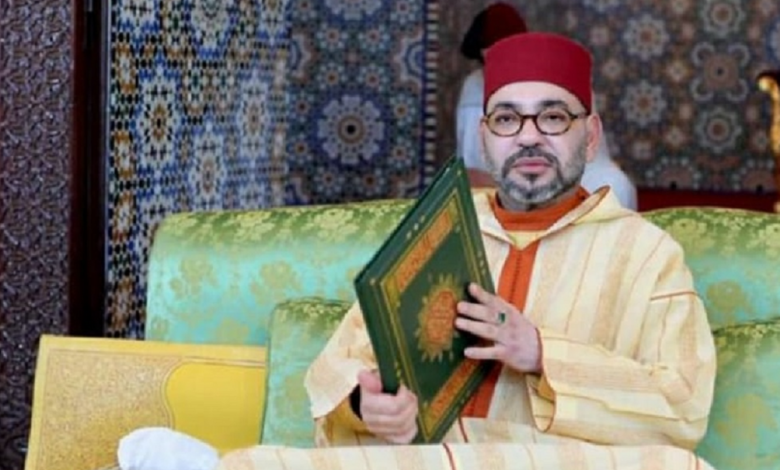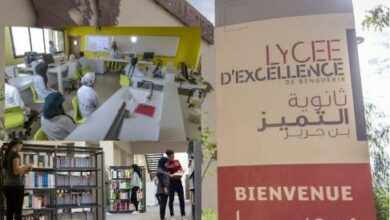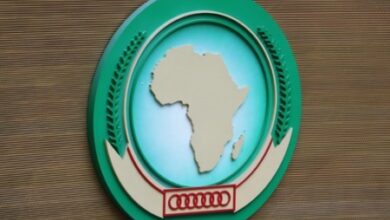HM the King Addresses Message to Participants in Colloquium on ‘Fatwa Rules in African Context’

Here follows the full text of the Royal Message, read out by the Minister of Endowments and Islamic Affairs, Mr. Ahmed Toufiq.
“Praise be to God,
May peace and blessings be upon the Prophet, His Kith and Kin
Honourable Ulema,
Ladies and gentlemen,
It gives me great pleasure to send you this message as you meet to discuss a subject I care deeply about – namely that of fatwas regarding Sharia provisions and new developments or issues (nawazil). My keen interest in the subject is in keeping with the sacred mission with which Almighty God has entrusted me, and which consists in protecting religion from all forms of extremism and reclusiveness, as well as all causes of strife.
Adding to my satisfaction is the fact that it is the Mohammed VI Foundation of African Ulema that has invited you to this meeting. Ever since I created the Foundation eight years ago, it has always achieved the goals I set for it, including the objective of pooling and coordinating the efforts of Muslim religious scholars from Morocco and other Muslim African countries. The aim is to shed light on and promote the tolerant values of Islam, and to undertake initiatives that give substance to moderation and Ijtihad in all reform processes needed to further development in Africa in general, as well as in each African country.
Ladies and gentlemen,
You are probably aware that one of the reasons I set up the Mohammed VI Foundation of African Ulema was to leverage the rich heritage bequeathed by our righteous ancestors over the centuries in the Kingdom of Morocco as well as in sub-Saharan African countries.
These African bonds are rooted in the common immutable values shared by Morocco and African sister nations regarding the Islamic faith and moderate Sunni Islam. Those immutable values and principles are based on the chain of narrators relating to behavior – which were nurtured by the Sufi orders on the one hand – as well as on the ascriptions pertaining to Sharia-related knowledge, as narrated through the chains of trustworthy sheikhs, on the other. Conduct and Sharia-related knowledge are two sides of the same coin in our religious thought.
Communication and interaction between the Commandership of the Faithful in Morocco and Sufi orders in African countries have existed for centuries. In more recent times, and by the grace of the Almighty, I have managed to address an urgent need, which is to create an institutional framework for interaction between religious scholars, jurists and muftis. Such a platform is needed to tackle new challenges relating to various aspects of social and cultural life, and also the necessity to come up with and apply legal rulings on them.
The responsibility shouldered by religious scholars has always been particularly important. Today, it has become even more so. It is a major responsibility before God and the people. The latter look to religious leaders as the most reliable source for conveying God’s Message and also for the proper implementation of what He has ordained for them.
As for the frame of reference for religious scholars as they assume that responsibility, it is defined by what we have learned from the guidance and example of my revered ancestor, Prophet Muhammad, may peace and blessings be upon Him, who said in one of the Hadith:
“This knowledge will be carried by the trustworthy of every successive generation, refuting the corruption of extremists, the distortions of falsifiers, and the interpretations of the ignorant.”
Today, these descriptions apply to some groups of people who involve themselves in religious matters.
Religious scholars are therefore called upon to exert a positive influence on people by highlighting the virtues of moderation and balance, on the one hand, and, on the other, by neutralizing any negative sway ignorant extremists may have on innocent minds. This is all the more important as perverted extremists present most of their views as fatwas, exploiting the sanctity of fatwa in people’s minds.
In order to protect the faith willed for us by the Almighty, I took measures to create an institutional framework for the issuing of fatwas in the Kingdom of Morocco, making it a collective endeavor falling within the remit of the Higher Ulema Council. It is to that Council that people turn for matters relating to their faith. Concurrently, and on an individual level, religious scholars respond to people’s queries regarding matters of public life that do not fall under the fatwa domain. This is, perhaps, the approach that African countries should adopt, namely to entrust the issuing of fatwas on public affairs to a collective institution made up of moderate, trustworthy religious scholars committed to the immutable values and madhab of their country.
Honorable Ulema,
Your auspicious symposium on fatwa should deepen the meaning of moderation among Muslims today, consistent with what Almighty God says in the holy Quran:
“Thus have We made of you an Ummah justly balanced”.
This divine decree reflects the need today to avoid extremism and division. It is an urgent call to make sure people embrace moderation, to reassure them when it comes to disagreement about certain details, and to highlight the firm determination to cooperate and hold regular consultation among African religious scholars. The aim is to keep abreast of developments in the field of making fatwa queries and responding to them, and to ensure muftis engage in Ijtihad, keeping in mind local cultural modes of conduct, provided the latter are consistent with legal provisions and categorical injunctions.
When it comes to reconciling everyday life with religion, Moroccan religious scholars stand out as a model to be followed. Thus, over the centuries, and in matters of jurisprudence, they developed the concept of “customary practice”, meaning to take into account people’s best cultural practices. Consequently, they developed the mechanisms of Ijtihad in the Maliki school of thought, incorporating in fatwas a number of people’s social and cultural practices which were consistent with religious injunctions, especially in terms of guaranteeing worldly interests and people’s psychological and spiritual tranquility.
African muftis should also seek to expand their knowledge and exchange views among themselves, especially with regard to jurisprudence relating to everyday life. They should also record the findings of their research work through all electronic means available in order to benefit more people and contribute to better qualification of religious leaders.
To increase the chances of success in addressing fatwa matters, the assistance of experts from outside the field of Sharia sciences should be sought. This is an established practice in the history of jurisprudence and fatwa making in Morocco.
Ladies and gentlemen,
The program proposed for your symposium should serve as a solid starting point for addressing the rules governing the issuing of fatwas in Africa. Thus, your program will shed light on the concept of fatwa, explain its rules and the eligibility of muftis, address the issue of disagreement regarding some reference sources, analyze the scourge posed by fanatical tendencies and tackle the challenge of implementation, keeping in mind customs and particularities.
The symposium will also address impingement on fatwa issuing today by those who are not qualified for such an exercise. There is a risk that such impingement may lead to disseminating an extremist discourse, takfir and hatred. Tackling the situation effectively requires the ability to engage with the communication-based society and leverage advanced technology.
In this regard, I urge you to make the most of the benefits of communication in order to ensure a regular exchange of views on the topic of your symposium. You can thus expand your knowledge base and exchange experiences. This should make it possible for each group of religious scholars in a given country to benefit from the knowledge and proficiency of all African Ulema who commit to this initiative. It goes without saying that the right of religious scholars in each country to take into account their own particularities shall be preserved.
Ladies and gentlemen,
I should like to stress that your initiative on fatwa rules will be successful only if you involve women religious scholars in all its aspects. This is because, in our religion, women are sisters of men in terms of rulings. In this regard, the Muslim Ummah has a role model in the person of the ‘Mother of the Believers’, sayidatuna Aisha, may God be pleased with her. It is from her that Muslims took a significant part of the provisions of their religion.
Consistent with this conviction in matters of faith, a number of female religious scholars in Morocco provide guidance to men and women regarding religious affairs. And for the same objective, female religious leaders play a prominent role in providing guidance through the media.
Ladies and gentlemen,
Your symposium is in line with what Almighty God has commanded: namely to cooperate in righteousness and piety. We have seen, in this epoch of ours, that a country is only safe if its neighbor is. We have also seen that strife and unrest cross borders the same way storms and whirlwinds do.
Before closing, I wish to congratulate you on holding this blessed scientific meeting, to which I have granted my high patronage. You have come together to discuss a particularly important topic, with the foremost objective of institutionalizing fatwa in religious affairs, leaving no room for any extremist tendencies or misleading vagaries.
May Almighty God grant you every success.
Wassalamu alaikum warahmatullah wabarakatuh.”
AL dar : LA MAP





